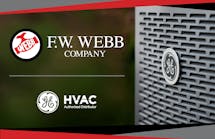Web Marketing experts have frequently debated the risks and benefits of Paid Search advertising and Search Engine Optimization since the two strategies emerged about ten years ago. Today, Paid Search, or Pay-Per-Click advertising (PPC) and Search Engine Optimization (SEO) have evolved into the leading forms of 21st century marketing.
Both programs drive more traffic to your website, which in return should increase your sales. This article will help you understand the differences between the two in order to make an informed decision about which method can better help yourbusiness succeed on the Web.
Paid Search refers to online advertising that can guarantee ‘page one’ rank on Google, Yahoo, and Bing – for a price. It is a fast and measurable way to generate inbound leads from Web-savvy consumers. Search Engine Optimization refers to the process of managing your website’s content and organization to improve its ranking in the “organic” search results. Done right, SEO can provide long-term, measurable results on Google, Yahoo and Bing.
Individually, both PPC and SEO will improve exposure in your market area. However, most Web Marketing experts agree that the most effective plan utilizes not one or the other, but a combination of these two strategies.
For any local business, it’s vital to find the right balance between Paid Search advertising and Search Engine Optimization. Many businesses focus on just one approach due to a lack of resources or time. In doing so, they may be missing opportunities that are easily within their grasp to get more business from the web.
For those who doubt whether sponsored links – Paid Search ads – ever get clicked, Google generates nearly $25 billion each year, most of which comes from sponsored links. Businesses that pay to be in the sponsored results section consistently receive thousands of clicks directed to their website. In fact, for many businesses, sponsored links are their most significant source of traffic on the Web. A research study reported at a Kelsey Group Internet Conference in 2009 examined web marketing and found that nearly 20 percent of sales on sample websites were a result of Paid Search advertising. In the same study, organic search results produced nearly 13 percent of sales volume in the sample. In other words, the study showed that one-third of total sales volume was derived from both organic and paid search results. Now do you want to improve your presence in those areas?
It is difficult to say which of these two strategies is more effective. Each service provides different benefits and may prove more or less costly based on industry and location.
For starters, Paid Search advertising provides instant results. After successfully bidding to have your site posted among sponsored listings, it will show up immediately. Search Engine Optimization can take up to several months to work. Trying to solve search engine algorithms takes time, and unless you know what you’re doing, you may still end up hidden deep in search results.
While it may seem like Paid Search is a quick and easy approach to web marketing, it actually takes significant effort to use it effectively. You have to stay up-to-date on costs, returns and which keywords are working well and which aren’t; this can end up causing quite a headache. Conversely, search engines have unique search return algorithms that are very difficult to solve. If you’re going to rely on Search Engine Optimization, you’ll find that there are hundreds of factors that determine which websites get posted first in search results.
Some researchers believe that most people only look through organic search results. A study done by Advertising Age in 2006 showed organic results are nearly 10 times more likely to be clicked on than paid search results. This discrepancy might make you think that SEO is the better option. However, as we saw earlier, similar studies indicated that paid search results are generally more likely to convert clicks into leads. This all builds into the idea that it is important to find the right balance between the two. Essentially, you need to decide which is more valuable – generating clicks, generating leads, or a cost-effective combination of both.
A unique benefit to Paid Search advertising is its value to businesses that would like to market specific events or product launches. Before the launch of a new product or service, PPC is an excellent solution for building awareness. After the event passes, you can easily scale down on the advertising in order to require less effort to maintain.
One similarity between the two strategies is the need for a strong we site, or more specifically, an impressive landing page. As potential clients seek out services on the web, most only spend a few seconds on a page before moving on to the next result. This is why it is so important to have a visually appealing site that will draw a client’s attention. Having a strong website is a necessity for any marketing campaign. Without one, you may be left questioning why your marketing strategies are not working.
The debate about which strategy is more effective will probably continue for years. A few things are evident, however. PPC (Paid Search) can provide quick if not immediate web marketing results. On the other hand, SEO (Search Engine Optimization) can be more affordable but commonly takes months to reveal success and is generally much more difficult to track and measure return on investment.
Like any marketing campaign, the best web marketing approach utilizes a comprehensive plan with several different strategies. Allocating your resources properly could help your business become the premier HVAC distributor in a local market; not doing so might result in one of your competitors achieving that role.
Griffin Davis is vice president of Marketing for Market Hardware Inc. (www.markethardware.com) and contributed this article. Griffin has worked in Internet Marketing and Small Business marketing since 1993. Market Hardware helps HVAC professionals compete on the Web with Website Design and Search Engine Marketing services. Ask Griffin any Website Marketing question by emailing [email protected] or calling 888-381-6925.








